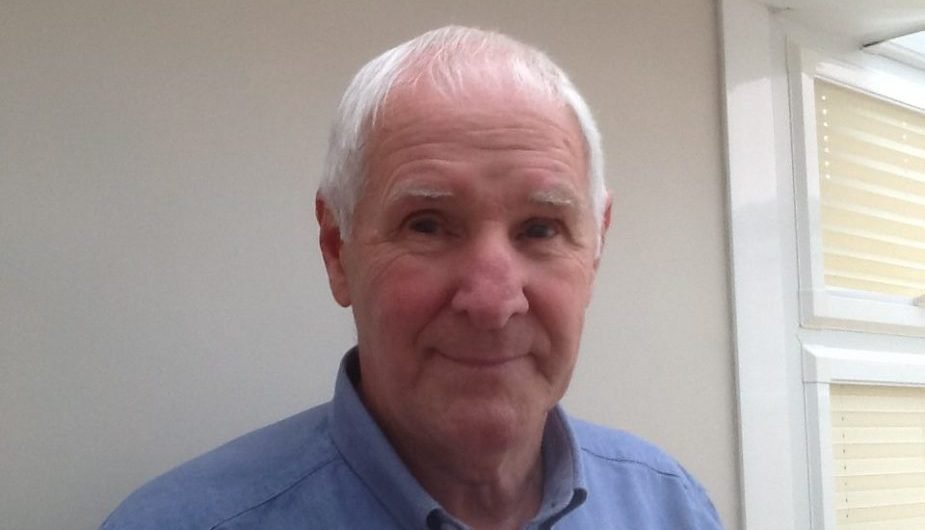The Wisden Club Cricket Hall of Fame: Steve Greensword

 by Scott Oliver
by Scott Oliver
@reverse_sweeper 3 minute read
Scott Oliver profiles a prolific all-rounder whose giant-killing feats for Durham helped set the county on course for first-class status.
“He were a good bowler, that Greensword.”
You know you can play when you elicit praise from Geoffrey Boycott, and ‘Fiery’ was certainly impressed after Durham beat Yorkshire in the 1973 Gillette Cup to become the first minor county to down a first-class team.
A son of Philadelphia, a pit village in County Durham, Steve Greensword’s parsimonious wicket-to-wicket medium pacers, all nibble and nous, brought him a remarkable career economy-rate in the Gillette Cup and NatWest Trophy of 2.71. In the B&H Cup – in which he played 37 games for the Minor Counties XI (including four more giant-killings, in which he returned 41-9-114-6), skippering them for two years in his late forties – he went at 3.62. “He was intimidating,” says Alan Butcher, captain of the Glamorgan side turned over by the Minors in 1987, “but in a different way: no one could hit him.”
“I used to get on at the right time,” recalls Greensword modestly, in the soft Mackem burr of a lifelong amateur operatic singer, a voice belying the steeliest of competitors. “Whereas with the batting I was often down the order. But I was definitely a batsman who bowled.”
“Bleazard was carried from the field on his teammates’ shoulders and straight into immortality.”@reverse_sweeper meets a @LowerhouseCC legend. https://t.co/W1dzaAJFxL
— Wisden (@WisdenCricket) November 1, 2019
Indeed, not many 41-year-olds take off their helmet while facing Michael Holding, which he did in 1985 when adding 40 to figures of 12-4-20-3 to win a third NatWest Trophy Player of the Match award, as Durham repeated their giant-killing heroics to beat Derbyshire by seven wickets. “They all said, ‘What are you doing, man?!’ But I couldn’t handle it. Too uncomfortable.”
Greensword averaged 54 for the Minor Counties XI across five games against the West Indians, too, and scored a List A best of 73 against the ferocious Sylvester Clarke on a quick Oval pitch in 1982. Yep, he could bat.
All this came after seven years on the Leicestershire staff, initially rooming with Dickie Bird, before he returned to the North East, homesick, aged 22. There he carved out a phenomenal career, not only as a lynchpin of the Durham and, briefly, Northumberland minor counties teams, but also as an extraordinarily successful professional in the region’s tough club cricket.
“I’ve enjoyed my cricket more as an amateur and would take what I’ve done in club cricket over being a pro every day of the week.”https://t.co/CYuBYkqiaR
— Wisden (@WisdenCricket) October 10, 2019
All in, Greensword scored 8,684 Minor Counties Championship runs at 32.5 – once, as an opener, making unbeaten hundreds in each innings, which meant being on the pitch for the entire game – and snared 464 wickets at 20.6 as Durham went 65 games undefeated across six seasons, winning four Championships and an MCCA knockout (Greensword: 38 and 11-4-18-3), a significant factor in their eventual elevation to the first-class ranks.
Back in the bread and butter of league cricket, he had three years at South Northumberland in the late Sixties, winning a title, then moved south of the Tyne to Gateshead Fell, helping them to their solitary Durham Senior League (DSL) success. After that, it was two years at South Shields, where he became the first man to hit 1,000 league runs in back-to-back seasons, and in 1973 he was back playing across the road from his childhood home.
Philadelphia won six titles in nine years as Greensword reached the magic 1,000 runs four seasons in a row, still a DSL record. In 1981, he left for Hartlepool, then Whitburn, Sunderland, Eppleton and Wearmouth, as well as spells back at Philly and Gateshead Fell, clocking up the runs, wickets and maidens, giving nothing away for cheap, the paid man right up until retirement, aged 51.
He amassed 23,000 DSL runs at 55, including 36 hundreds, while topping the batting averages eight times, and eight times making a thousand runs – all this alongside 1,400 DSL wickets, with some 35 per cent of his 10,000 league overs being maidens.
After hanging up the boots, Greensword took on manager/coach positions at Philadelphia, Chester-le-Street and Hetton Lyons in the North East Premier League, before donning the white coat and winning NEPL Umpire of the Year for three seasons straight. Frustratingly, though, he had started too late to get on the first-class panel.
“Canny umpire, that Greensword.” “Aye lad, but thu shoulda seen him play…”
With thanks to Jack Chapman, David Mackay and Duncan Stephen
Read about the previous Wisden Club Cricket Hall of Famer
Read more club cricket stories
First published in issue 23 of Wisden Cricket Monthly. Subscribe here

